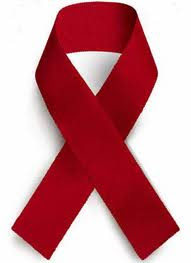
nº 24Contact us HEREJunio 2014 |
Is progress being made towards the creation of artificial life?
Recent press reports have highlighted what appears to be a major advance towards the creation of artificial life, when they reported the total synthesis of the first chromosome of an organism, a yeast, that is biologically more similar to humans than …
|
New steps towards the production of human cell lines
In 2013, Mitalipov’s group published an impressive study in which they reported the production of human blastocysts, and how embryonic human cell lines could be derived from them, and from these, cells of various tissues. The ethical difficulties of these experiments …Leer más.
|
Embryo implantation in the maternal uterus is better known by new technology
Better knowledge of the mechanisms that govern embryo implantation in the uterus, besides being of great biomedical interest, also has unquestionable ethical interest. We must not forget the widespread controversy about when human life begins … Leer más.
|
Assisted reproduction ethics: legal tangle
In mid-June, the European Court of Human Rights will be hearing the case of Adelina Parrillo versus Italy. The case goes back to 2002, when Adelina and her husband froze five embryos for future transfer. However, her husband died one year later … Leer más.
|
AIDS treatment: new dilemmas
About AIDS tratment There is no doubt that HIV antiviral treatment is one of the major advances in medicine. However, despite its prolonged use, the medication does not cure the infection. This is demonstrated by several …
|
Down’s syndrome, the value of these lives
Malaga-born Pablo Pineda, the first European with Down’s Syndrome to obtain a university degree, has called for this disability to be considered normal, and asks that we respect the right to life of those who have … Leer más.
|
Fertility rate in Spain
Last fertility rate: the number of children per woman of reproductive age in Spain has fallen from 3.01 in 1964 to 1.32 in 2012. These rates per year were … Leer más.
|
Foetal as waste incinerated in english hospitals
Foetal ramains: The remains of more than 15,000 babies were incinerated as “clinical waste” in British hospitals… Leer más.
|
Genetic testing in women with a risk of tumour diseases
There is a passionate medical and ethical debate about whether genetic testing should be carried out on all women to detect whether they are carriers of BRCA genes, as carriers are known to have a much higher likelihood of developing breast cancer … Leer más.
|
AIDS, efficacy of treatments
AIDS: Between 1995 and 2012, antiretroviral treatments prevented 5.4 million deaths due .... Leer más.
|
HIV resistant people
Three strange cases have been described of patients infected with HIV in whom the virus has not continued to replicate after stopping treatment. The latter … Leer más.
|
The Orthodox Church and embryo experimentation
What are the views of the Christian Orthodox church on experiments with human embryos …
|
In-vitro fertilisation negative side effects
It was not possible to establish whether some of the problems are due to the older age at which women undergo these procedures, or to the assisted reproduction techniques.... Leer más.
|
Down’s syndrome, the value of these lives
Malaga-born Pablo Pineda, the first European with Down’s Syndrome to obtain a university degree, has called for this disability to be considered normal, and asks that we respect the right to life … Leer más.
|
Palliative care in Latin America
Since its introduction in the 1980s, palliative care has been developing little by little in Latin America. … Leer más.
|






























.png)











No hay comentarios:
Publicar un comentario